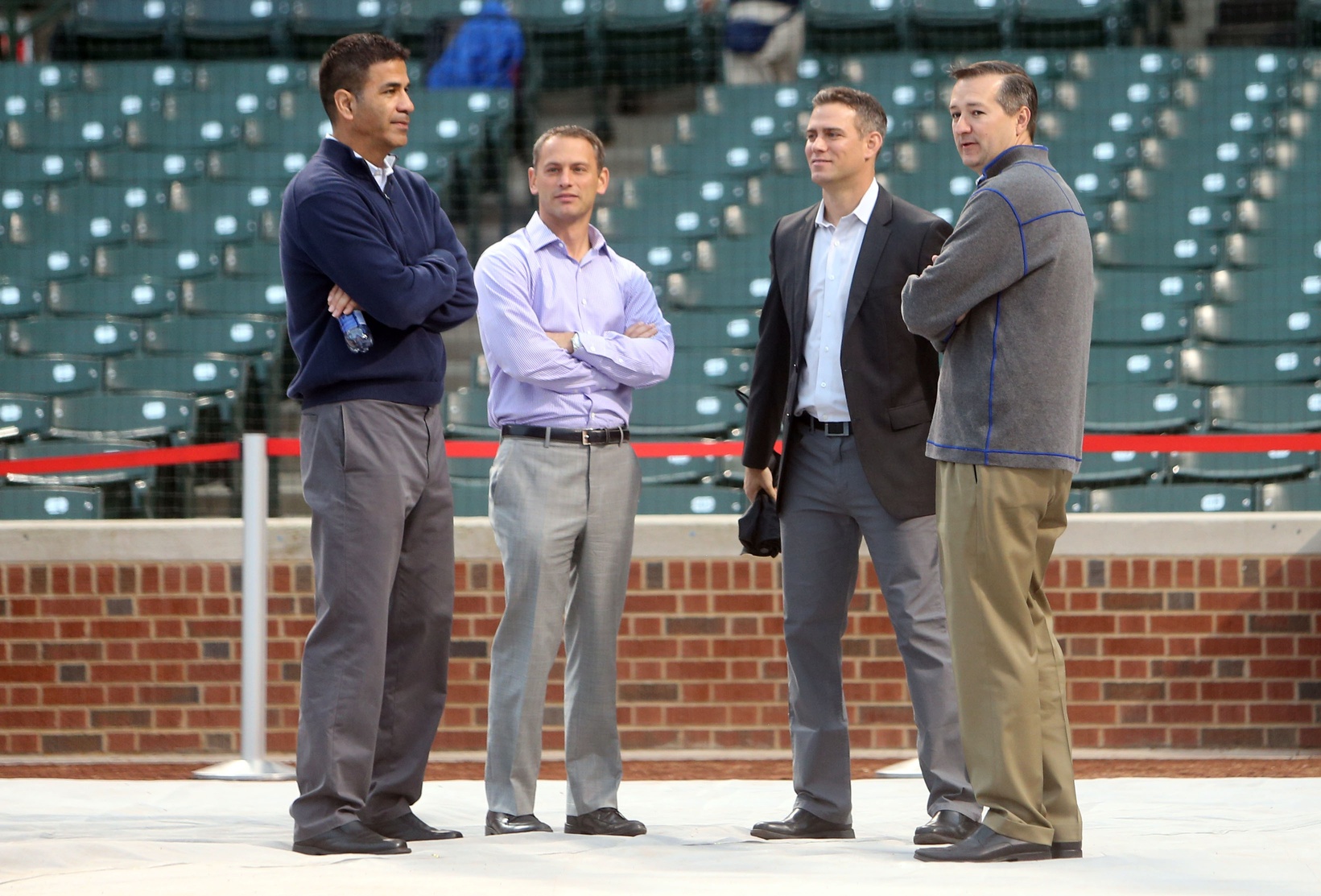The following Q&A, conducted by BP’s Tim Britton (also of the Providence Journal) originally ran on the main site today. We think you’ll enjoy it, too, so we’ve posted a portion here. For the full interview, please head on over to the main site.
Jason McLeod’s first-ever draft pick as a scouting director was Dustin Pedroia, 65th overall in 2004. Since that point, in stints with the Red Sox, Padres and Cubs, McLeod has overseen the selections of talents such as Jacoby Ellsbury, Clay Buchholz, Anthony Rizzo, Joe Ross, Kris Bryant and Kyle Schwarber.
McLeod, now the senior vice president of player development and amateur scouting for Chicago, has seen the draft before and after the spending regulations put in place in the last collective bargaining agreement, he has seen it from big markets and a smaller one, and he has seen it from the perspective of a perennial contender and from that of a rebuilder. His team has picked as high as second overall; this year, it won’t make a selection until no. 104.
With the draft around the corner, we chatted with McLeod on June 1 about all that he’s learned in 12 years of selections—including the significance of makeup, the role of luck and the inescapable regret.
Tim Britton: How different is the draft now, especially since the last collective bargaining agreement, since you were first with the Red Sox?
Jason McLeod: Well, the biggest thing is certainly the draft pool and the bonus money that’s allotted now. In Boston, we were able to be a lot more aggressive. There weren’t really restrictions on what you could spend in the draft. You’d always talk to ownership, of course, and if things got out of hand with some of the signing bonuses, you might get a call from Major League Baseball. But you were allowed to be aggressive.
You look at a year like this year for us, not having a first- or second-round pick, and what that does to your bonus pool. I don’t want to say limits you, because you’re already limited by not having those first two picks. You’re just not allowed to be more aggressive with limited money.
TB: How does that change the approach going in?
JM: It doesn’t change the work that you have to do in terms of the evaluation of a player and the due diligence on the makeup and the background and so forth. In a year like this year for us, I think we have the lowest bonus pool out there. You really have to take into consideration, if you’re going to consider overpaying for someone, what that does to your draft when you have such a minuscule amount of money. In other years when we’ve picked in the top 10 or top five, you’re able to spread some of that around, and we’ve seen teams do that.
For the remainder of the interview, please head on over to the main site.
Lead photo courtesy Jerry Lai—USA Today Sports.
